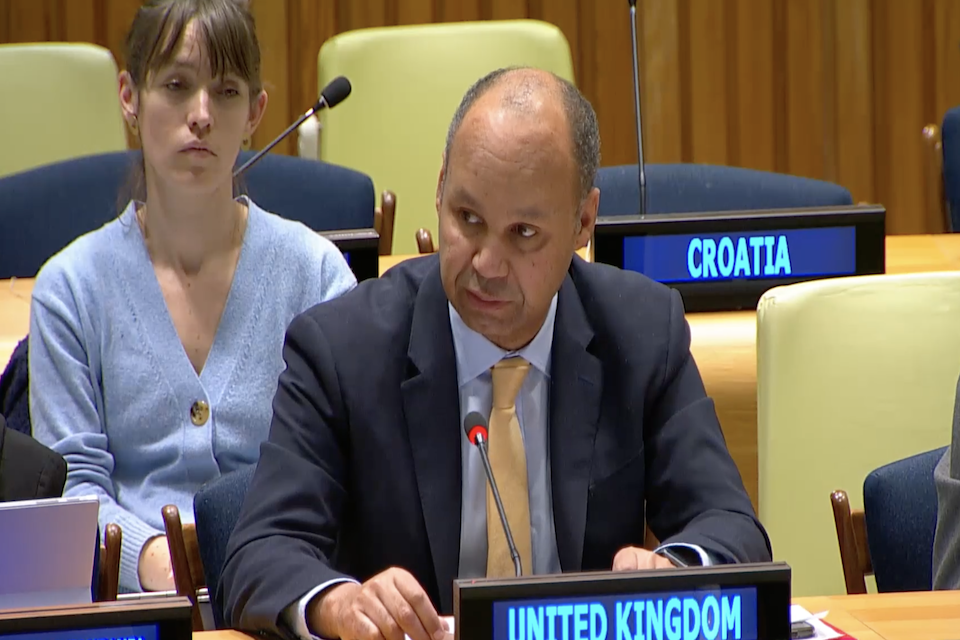The UK believes the Council must be reformed: UK statement at the UN General Assembly
Statement by Ambassador James Kariuki at the UN General Assembly meeting on Reform of the Security Council.

Thank you for convening this meeting of the IGN. The UK believes the Council must be reformed. We share your commitment to making progress, and hope that this new format of discussing all the clusters together, followed by in-depth discussions on the models, allows us to do so in this 78th session of the GA. Against the backdrop of increasing conflict around the world, the Council’s mandate to safeguard international peace and security is as relevant today as it was when the UN Charter was first signed in 1945.
Global multilateralism is the best tool we have to collectively tackle the challenges we face. We believe a reformed, more representative Council will be best placed to respond to the urgent peace and security issues of our time. Allow me to set out the UK’s longstanding position on the five clusters:
On categories of membership, the UK supports expansion in both the permanent and non-permanent categories. We support permanent African representation and the addition of new permanent seats for Brazil, Germany, India, and Japan. In addition, we support the expansion of the non-permanent category to take the overall size of the Security Council to the mid-20s.
This vision of Council reform is guided by the principles outlined in Article 23 of the Charter. A reformed Council must include states that are willing and able to contribute to the maintenance of peace and security; it should ensure the Council remains responsive and effective; and it should deliver a Council more representative of the world it seeks to protect, so we can all benefit from the perspectives and expertise of a wider range of UN membership.
On regional representation, we are clear the Council acts on behalf of the whole membership. States are elected to the Council, by the General Assembly, in their own right.
The working methods of the Council are critical to its effectiveness, and are a matter for the Council to decide. We have supported efforts to bring in perspectives of civil society and remain strong advocates on the importance of high-quality Council briefers.
Throughout the UK’s work on the Council, including on files on which we penhold, we strive to take a consensus-based and transparent approach. We consult frequently with relevant actors, including regional organisations and bodies. For example, our close consultation with ASEAN on Myanmar. And we seek opportunities to partner with Council members from the relevant region on country files on which we penhold. For example, working closely with our colleagues from the A3 on Somalia and Sudan.
The role of the elected members is invaluable in providing insight and expertise, and initiating new Council discussions and products, as with Resolution 2686 on tolerance and the protection of religious minorities in conflict settings, which we were proud to co-pen with the United Arab Emirates.
Turning to the veto. It is a heavy responsibility, to be used in the interest of securing the peace and security that people around the world seek, and the UN was established to provide. The United Kingdom has not used our veto since 1989. As a proud signatory of the Accountability, Coherence, and Transparency Group’s Code of Conduct, we remain committed never to vote against a credible draft resolution on preventing or ending a mass atrocity. We encourage all Member States, including the other permanent members of the Council, to support this initiative.
Co-chairs, finally let me address the relationship between the Security Council and the General Assembly. These two organs have distinct mandates as set out in the UN Charter. But as we have seen this week, there is an appetite from the wider membership to make clear their views on matters of international peace and security; we welcome those contributions.
In closing, let me reassure you of our commitment to reforming the Security Council, and to making meaningful progress in this session of the General Assembly.
Thank you.